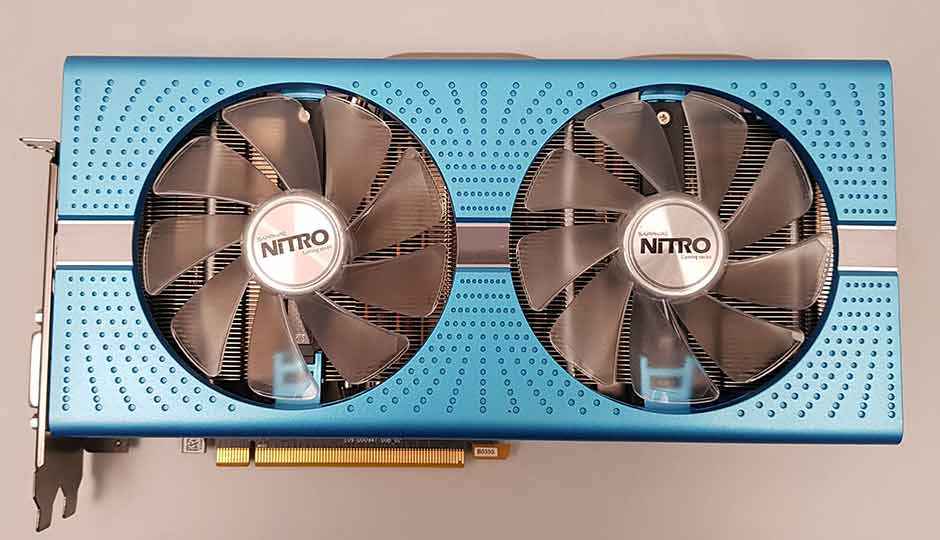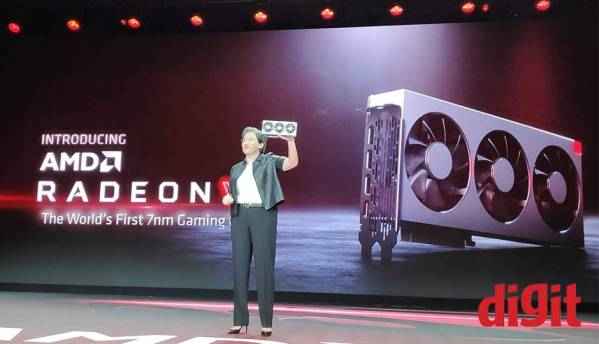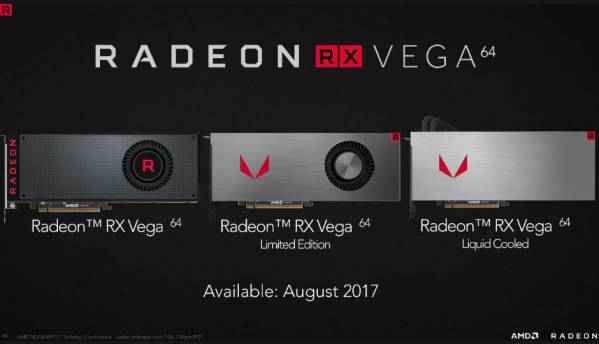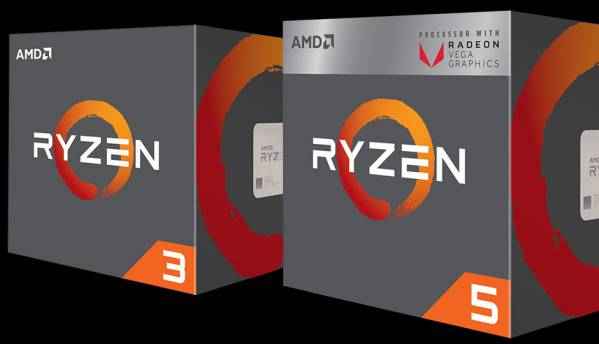SAPPHIRE NITRO+ Radeon RX 590 8GB Review

- 26900/-
SAPPHIRE NITRO+ Radeon RX 590 8GB Price in India
SAPPHIRE NITRO+ Radeon RX 590 8GB Rating 78100100
Our Verdict
The RX 590 is an interesting graphics card. It's better than the stock GTX 1060 but might probably be bested by an overclocked GTX 1060. However, getting the same chip out for three years in a row seems a stretch. AMD was clearly affected by the loss of Raja Koduri but such technologies are developed well in advance. It wouldn't be wrong to assume that AMD does have something better for the mid-range segment especially given that the next generation of consoles are due to be launched in 2020 (most likely) and developer consoles have already gone out to major studios with specs akin to the final configuration. The Radeon VII should clue us into what the next generation is capable of, though it might be some time before we see a new architecture. For folks wondering if they should get an RX 590 for mid-range gaming, you most certainly should given the fact that the included bundle makes this one of the sweetest deals you’ll get for a while. It’s a good mid-range graphics card but you couldn’t go wrong with a GTX 1060 or an RX 580 since all three cards are good at 1080p gaming. What you need to wonder is if you’d want three free games or not.
PROS
- Great build quality
- Samsung/GloFo 12nm
- Excellent value for money
CONS
- Massive size
- 250W TBP for mid-range
SAPPHIRE NITRO+ Radeon RX 590 8GB: Detailed Review
AMD showcased a different strategy when it came out the Polaris range of graphics cards. The focus was now on the mid-range and entry-level cards first and the flagships would follow later. Roughly two-and-a-half years later, we’re looking at the same Polaris cards even today. Polaris itself was a marked improvement over the previous generation of Radeon graphics cards and the roadmaps certainly showcased an upward trend but we’re yet to see a worthy successor to the Polaris lineup. The recently announced Radeon VII seems like it would be turning things around. Hopefully, we’ll know in a few weeks.
Coming back to the Radeon RX 590, it is another revision of the RX 480. The RX 480 was followed by the RX 580 which had the same GPU configuration but sported slight improvements that allowed it to scale to slightly higher frequencies. However, there board power requirement also went up to 185 watts from 150 watts that the RX 480 was designed for. So one can’t really tell if the process improvements helped much given the increase in power consumption. Now that we have the RX 590 which is a slightly improved version of the RX 580, let’s see how it fares in the current environment.
AMD Radeon RX 590 Specifications
The three columns are practically the same since the GPU architecture has been the same. The clock speeds have improved a lot and the typical board power values have also risen to match the clock speeds.
AMD Radeon RX Series Specifications | |||
SKU | RX 590 | RX 580 | RX 480 |
Stream Processors | 2304 | 2304 | 2304 |
Compute Units | 36 | 36 | 36 |
Texture Units | 144 | 144 | 144 |
ROPs | 32 | 32 | 32 |
Base Clock | 1469 MHz | 1257 MHz | 1120 MHz |
Boost Clock | 1560 MHz | 1340 MHz | 1266 MHz |
Memory Type | GDDR5 | GDDR5 | GDDR5 |
Memory Clock | 8 Gbps | 8 Gbps | 8 Gbps |
Memory Bus Width | 256-bit | 256-bit | 256-bit |
VRAM | 8 GB | 8 GB | 8 GB |
Transistor Count | 5.7B | 5.7B | 5.7B |
Typical Board Power | 225W | 185W | 150W |
Manufacturing Process | GloFo/Samsung 12nm | GloFo 14nm | GloFo 14nm |
Architecture | GCN 4 | GCN 4 | GCN 4 |
GPU | Polaris 30 | Polaris 20 | Polaris 10 |
Launch Price | USD 279 | USD 229 | USD 239 |
The other key element that stands out is the move to a smaller process node. This has been at the centre of much debate with folks claiming that the GLOBALFOUNDRIES 12nm process node is simply an interpretation of Samsung’s 14nm process node. So it is actually 12nm? Well, none of the transistor sizes are actually what they seem to be. The actual values of the different components of the transistor are much larger than 12 or 14nm. Fabs simply call it 12nm or 14nm to keep things simple. The differences between two manufacturing processes are vast and what we get to read are simply marketing monikers to keep things simple. The fact here is that the GLOBALFOUNDRIES 12nm is an improvement over the 14nm process node and that’s why the RX 590 can clock higher. It definitely will consume more power which is why the TBP for the RX 590 is now 225 Watts while the GloFo 14nm based RX 580 was at 185 Watts. Simply bumping up the power to the board wouldn’t have allowed the average user to achieve these clocks.
Performance
Our test rig has been upgraded to keep up with the times and the new Windows releases. This means all our legacy scores are not comparable, specially given the fact that CPU performance has gone up by a significant margin. Here’s what we’re running at the moment.
Processor - Intel Core i9 9900K
CPU Cooler - Corsair H115i RGB PLATINUM
Motherboard - ASUS ROG MAXIMUS X HERO
RAM - 2x 8 GB G.Skill Trident Z Royal 3200 MHz
SSD - Corsair MP510
PSU - Corsair HX1050
Graphics cards:
RTX 2060
AMD RX 590
GTX 1060 (6GB)
We ran the usual set of synthetics on the RX 590 which includes a host of benchmarks from 3DMark, Unigine, Compubench and a few others. Here's how the RX 590 fared.
In all our synthetic benchmarks, the Sapphire NITRO+ Radeon RX 590 is evenly matched with the NVIDIA GTX 1060 6GB variant. Since few benchmarks can actually flood the frame buffer, we don’t see any difference in scores. Most 3DMark benchmarks at their default configurations also run at FHD or lower resolutions. The RX 590’s larger frame buffer should prove itself in the gaming benchmarks at 1440p and 2160p, though the card really isn’t designed for the latter. The newer gen RTX 2060 that came out recently is ahead of both cards. However, it also is a lot more expensive than the RX 590 and the GTX 1060, so it’s not really an apples-to-apples comparison. We’ll be seeing how the RX 590 fares against the upcoming GTX 1660 and GTX 1660 Ti which are supposedly the successors to the GTX 1060. Let’s move on to the gaming benchmarks.
In all our video game benchmarks, the Sapphire NITRO+ Radeon RX 590 has a clear lead over the older NVIDIA GTX 1060 6GB graphics card. Except for The Witcher 3, in all other games, the Sapphire NITRO+ Radeon RX 590 gets higher frame rates at 2160p and 1440p. While the games aren’t playable at 2160p on any of these mid-range cards with all the eye-candy turned up, you could easily cut down on the AA and get playable frame rates. It would be a stretch so we don’t recommend it, just know that the possibility exists. The higher frame buffer of the RX 590 helps get better performance at 1440p and 2160p. Both cards use the older GDDR5 memory. Compared to the recently released RTX 2060, both the mid-range cards appear at a disadvantage.
Pricing
The Sapphire NITRO+ Radeon RX 590 is priced at Rs.26,900 on some of the popular computer specialist stores. The same SKU sells for about $265 which is roughly 25K INR with taxes, so this seems fairly contained and not the ridiculous pricing that we first saw with the RX 480 at launch. What sweetens the deal is that AMD is currently offering three AAA games with the Sapphire NITRO+ Radeon RX 590, not one but three. Each worth Rs.2,999. If we were to offset this cost from the graphics card then we’re paying Rs.17,900 for this particular SKU and all other partner cards which are participating in the bundle offer.
To better understand this, we’ve plotted a graph to showcase value for money based on 3DMark Ultra scores for each of these cards vs their current India pricing. The blue line indicated the price-to-performance ratio while the red line is an indicator of the relative performance of the cards. Without the game bundle, the RTX 2060 offers the highest value for money when compared with the RX 590. The older GTX 1060 doesn’t even come close. However, when considering the bundle which effectively offsets Rs.9000 from the price, we end up with a clear winner. Moreover, this is an 8GB card which means there’s more memory, albeit slower than GDDR6, for games to run larger texture files on. The RX 590 with the game bundle is the best deal you can get right now. One might ask, why doesn’t AMD sell the card for Rs.17,900. Well, AMD doesn’t get these games at the retail prices so getting these games via AMD saves money for the consumer at the end of the day. If we offset the cost of the additional memory then the GTX 1070 Ti appears as the better option. However, the two cards use different memory technologies. The RTX 2060 has the faster GDDR6 memory with a cumulative bandwidth of 336 GB/s while the GTX 1070 Ti tops out at 256 GB/s which means the RTX 2060 has more overhead and thus, lesser chances of bottlenecking. Please don’t get us started on SLI. TL;DR - The RTX 2060 gives you the best bang for your buck.
Sapphire NITRO+ Radeon RX 590 8GB Verdict
The RX 590 is an interesting graphics card. It's better than the stock GTX 1060 but might probably be bested by an overclocked GTX 1060. However, getting the same chip out for three years in a row seems a stretch. AMD was clearly affected by the loss of Raja Koduri but such technologies are developed well in advance. It wouldn't be wrong to assume that AMD does have something better for the mid-range segment especially given that the next generation of consoles are due to be launched in 2020 (most likely) and developer consoles have already gone out to major studios with specs akin to the final configuration. The Radeon VII should clue us into what the next generation is capable of, though it might be some time before we see a new architecture. For folks wondering if they should get an RX 590 for mid-range gaming, you most certainly should considering the fact that the included bundle makes this one of the sweetest deals you’ll get for a while. It’s a good mid-range graphics card but you couldn’t go wrong with a GTX 1060 or an RX 580 since all three cards are good at 1080p gaming. What you need to wonder is if you’d want three free games or not.
Other Popular Deals
 Samsung Galaxy J7 Nxt 32 GB...Rs. 10990 *
Samsung Galaxy J7 Nxt 32 GB...Rs. 10990 * Buy Now
Buy Now Moto G5s Plus Gold 64gbRs. 12049 *
Moto G5s Plus Gold 64gbRs. 12049 * Buy Now
Buy Now Redmi 5 (Black, 3GB RAM, 32GB...Rs. 9990
Redmi 5 (Black, 3GB RAM, 32GB...Rs. 9990 Buy Now
Buy Now
 AMD announces Radeon VII, 7nm graphics card with 3840 stream processors, claims to beats RTX 2080
AMD announces Radeon VII, 7nm graphics card with 3840 stream processors, claims to beats RTX 2080At the AMD CES 2019 key note held at the Sands Expo, Venetian, which was also AMD's first ever CES keynote, the CEO and President, Dr. Lisa Su...
09 - Jan - 2019 AMD RX Vega 64 and RX 56 aggregate benchmarks leak ahead of launch
AMD RX Vega 64 and RX 56 aggregate benchmarks leak ahead of launchJust a few days ago, AMD announced its new gaming focused Vega line-up of GPUs, which will be going on sale starting tomorrow. However, earlier...
14 - Aug - 2017 AMD Polaris 30 Based Radeon RX570 and RX580 successors launching in few weeks, launch date for new Threadripper 2 CPUs revealed
AMD Polaris 30 Based Radeon RX570 and RX580 successors launching in few weeks, launch date for new Threadripper 2 CPUs revealedIf rumours from PCOnline are to be believed, we might have the successor to the Polaris 20 based GPUs, the RX570 and RX580 right around the corner....
08 - Oct - 2018

AMD showcased a different strategy when it came out the Polaris range of graphics cards. The focus was now on the mid-range and entry-level cards first and the flagships would follow later. Roughly tw...
---------------------------------------------------------------------------
Visit this link to stop these emails: http://zpr.io/PnAEp



No comments:
Post a Comment